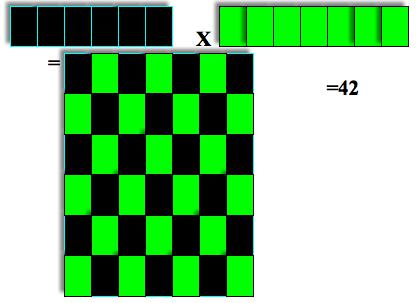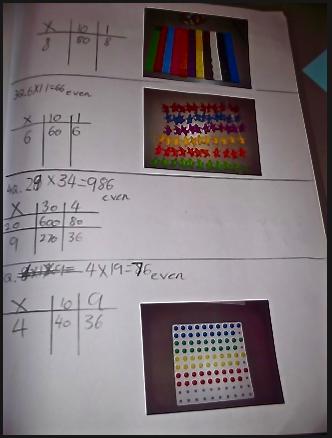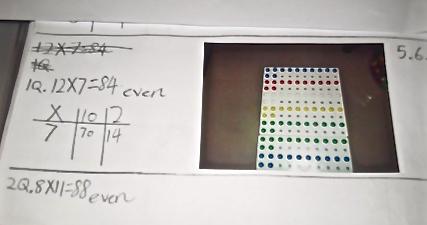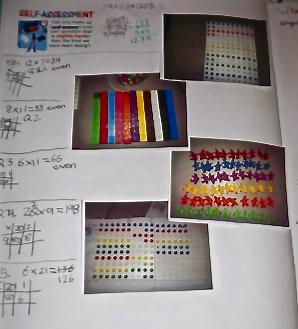Or search by topic
Number and algebra
Geometry and measure
Probability and statistics
Working mathematically
Advanced mathematics
For younger learners
Odd Times Even



- Problem
- Getting Started
- Student Solutions
- Teachers' Resources
We had just a few solutions sent in from pupils trying to give some kind of proof for this challenge. JasmineӬ from Salcombe Prep. ӬSchool in London sent in this picture and wrote:
Every time the numbers will make a rectangle

and from Michelle at the International School in the Seychelles we were sent the following:
When you multiply an even and an odd together it will always be an even number and when you times even and even togther it will also be an even number and how I did this was with cubes and I showed my teacher and he agreed with me.
ChrisӬ from St. Mary's Catholic Primary,Ӭ EnglandӬ had a good way of showing it:
An odd number multiplied by an even number will make an even number.
Key: different colour = different number

Finally from Christopher and ReiӬ at Seoul Foreign School (SFS)Ӭ, South Korea (Republic of Korea) we have the following:
Answer for Odd Times Even:
For example:
4*3=12 that's the same as 4+4+4
4 is even.
Everytime an even is added to a even the answer is always a even number.
We hope that we convinced you that an odd number times an even number is always an even number.
Year 2 at St. Matthews Primary School, Luton, England. sent in during 2015 the following:



They also added a sentence or two saying that they know that Odd times Even will always be even.
Thank you very much
Just a note to say you can always email in to Nrich solutions to the probemns that are no longer "live".
Thank you for all the contributions. It obviously made you think - and thinking is good!
You may also like
Let's Investigate Triangles
Vincent and Tara are making triangles with the class construction set. They have a pile of strips of different lengths. How many different triangles can they make?

